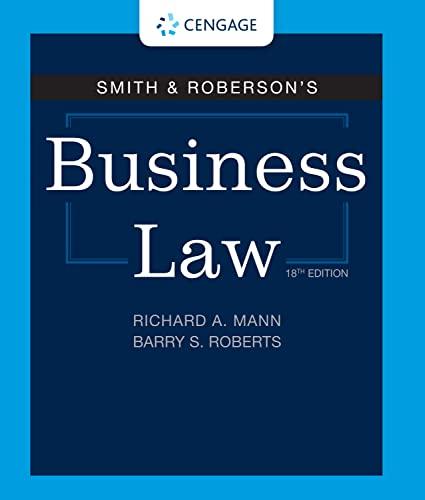Question
Under Title 40, often called the Rules of the Road, there are a host of crimes and offenses that someone could commit that would ultimatelyresult
Under Title 40, often called the "Rules of the Road," there are a host of crimes and offenses that someone could commit that would ultimatelyresult is disastrousand deadly outcomes due to the mobility of vehicles and the dangers they pose to society based on their size, weight, and potential for excessive speeds. One such incident was the Scott v. Harris case.
In the USSC case of Scott v.Harris (Georgia),Deputy Timothy Scott, terminated a high-speed pursuit of respondent Harris'car by applying his push bumper to the rear of the suspect vehicle, causing it to leave the road and crash. As a result, Harris was seriously injured andrendered a quadriplegic. Harris filed suit under 42 U. S. C. 1983 allegingthe use of excessive force resulting in unreasonable seizure under the Fourth Amendment. The USSC denied Harris' petition and ruled in favor of Scott, holding that Harris' car chase posed a substantial and immediate risk of serious physical injury to others, and that Scott's attempt to terminate the chase by forcing respondent off the road was necessary and reasonable. The USSC further held that Harris was ultimately at fault and therefore responsible for his own injuries.
Police chases are controversial under the climate of ourcurrent culture. In fact, the City of Atlanta announced in Januaryof this year that they were suspending all chases. Do you agree with this decision? Why or Why not? Is there an alternative to catching those who flee from the police so as not injure those fleeing, or potential bystanders?
Step by Step Solution
There are 3 Steps involved in it
Step: 1

Get Instant Access to Expert-Tailored Solutions
See step-by-step solutions with expert insights and AI powered tools for academic success
Step: 2

Step: 3

Ace Your Homework with AI
Get the answers you need in no time with our AI-driven, step-by-step assistance
Get Started


